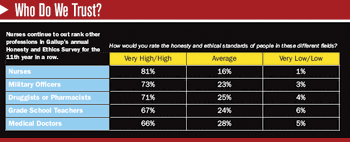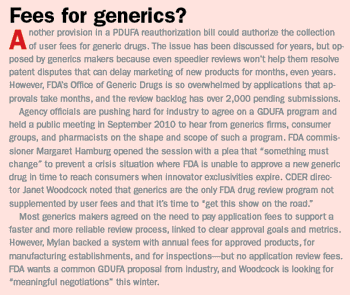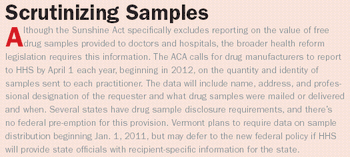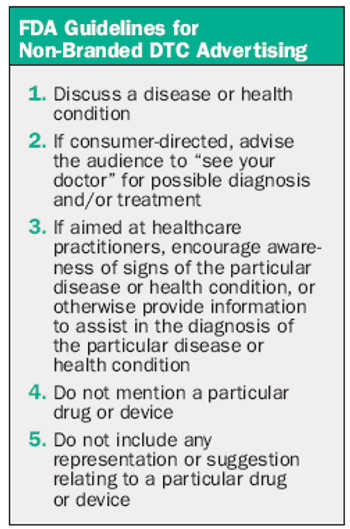
Sir Michael Rawlins, Chairman of the UK National Institute for Health and Clinical Excellence

Sir Michael Rawlins, Chairman of the UK National Institute for Health and Clinical Excellence

User-fee renewal legislation sets the stage for new policies affecting reimbursement, research, and regulatory oversight.

No one doubts the importance of health expenditures ? but then, euros, like dollars, don't grow on trees

A number of important decisions from the Supreme Court will affect drug marketing, research, and regulation

HTAs are gridlocked by diverse national requirements, a lack of alignment on processes, and even on the value of their outcomes.

In our latest podcast, Chris Garabedian, CEO at AVI BioPharma, discusses his company's $291 million contract with the Defense Department, and how RNA-based therapeutics are being used to combat infectious diseases.

FDA's opiod REMS implies there is still value in industry-sponsored CME

Successful negotiations require a willingness to take risks and an ability to adapt

To decide on a course of treatment, patients need to be told the truth straight up

Suggestions for testing new ways of addressing difficult issues of risk

A federal appeals court has lifted a ban on federal funding for embryonic stem cell research.

Considering Big Pharma's trade objectives, the success of regional regulatory harmonization is not insignificant

Stiff price tags draw scrutiny from Congress and consumers, and raise questions about FDA policies

Use of off-label drugs is a balancing act for physicians, and poses even more problems for pharma. The FDA is moving slowly to help

Courts, Congress review policies and programs shaping drug costs and access

FDA's Sentinel Initiative raises broader questions about tapping patient information and health IT for comparative studies in drug development

Pharma companies will assess health reform, negotiate user fees and keep an eye on federal prosecutors in the year ahead

Cegedim survey documents whether European industry is ready for the challenge of new compliance and disclosure risks on promotional spend

November 6, 2010.

Harvard professor Daniel Carpenter offers a piercing analysis of the FDA and sheds light on its biggest challenges

There's been much talk of how US health reform will impact physicians, patients, and insurance companies. But how will it affect the often overlooked specialty drug market?

A timeline of some of the landmark legislation, court decisions, and drug scandals that helped forge the FDA

Health reform requires detailed tracking and full disclosure of fees to docs for marketing and research

FDA seeks to regulate genetic tests more actively, while encouraging diagnostic development

The effectiveness of DTC prescription advertising hinges on a consumer's thirst for information. A new study intimates the less info consumers are given up front, the more they seem willing to learn